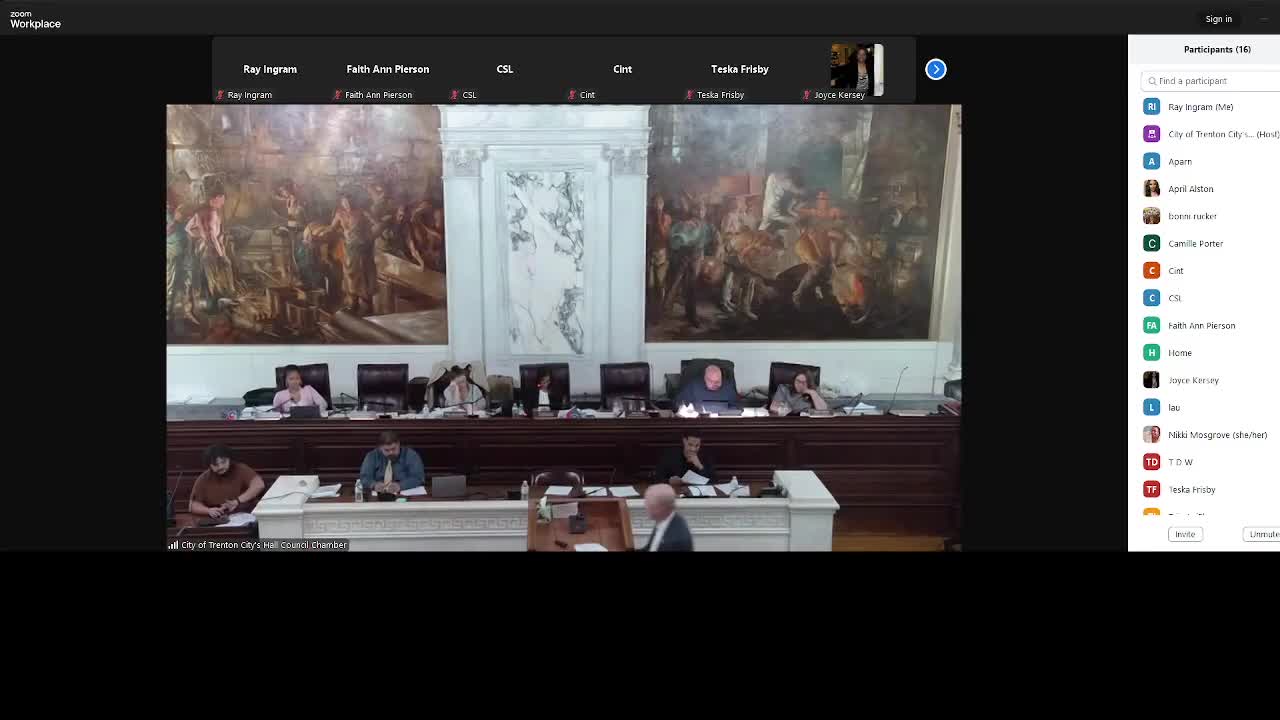City authorizes six‑month negotiation window with conditional redeveloper for Lafayette Hotel; legal and lien issues remain
Get AI-powered insights, summaries, and transcripts
Subscribe
Summary
The city’s redevelopment counsel told the Trenton City Council on Thursday it has selected a conditional redeveloper for the Lafayette Hotel and seeks authorization for a six‑month memorandum of understanding to negotiate purchase and redevelopment amid multiple liens and title complications.
The city’s redevelopment counsel briefed the Trenton City Council on the Lafayette Hotel transaction on Thursday, asking the council to authorize a memorandum of understanding that would let the city negotiate exclusively with a selected developer for up to 180 days and require the developer to post escrow for city negotiation costs.
Jim Malley, redevelopment counsel for the city, said the administration selected a company called TetraBuilt through the public selection process as a conditional redeveloper. The memorandum of understanding under consideration would name them a conditional redeveloper and permit exclusive negotiations for up to six months to complete a purchase agreement, a sale to the redeveloper and a redevelopment agreement. The MOU would also require the selected developer to post escrow funds to cover negotiation costs and any due diligence expenses borne by the city.
Malley said the transaction is complicated by liens and title issues on the property — he cited “just less than a million dollars” in a lien from the Department of Community Affairs for fire code violations and “six figures” in tax liens — and by the city’s lack of condemnation authority for economic development purposes. The city also has a recent EDA grant to assist with purchase, he said, and officials must resolve title and lien issues before a clean transfer can occur.
Council members asked about realistic timetables and safeguards. Malley said closing and preparation for construction would be unlikely before 2027, and that redevelopment agreements typically include benchmarks and cure periods; if a developer fails to meet agreed benchmarks, the city can negotiate termination clauses and require curative steps. He said the selected developer was not currently seeking a payment‑in‑lieu‑of‑taxes (PILOT) agreement but that such requests sometimes arise as negotiations proceed.
Why it matters: The Lafayette Hotel is a high‑visibility vacant property and a redevelopment priority; officials emphasized the need to balance speed with resolving legal encumbrances and ensuring the selected developer will deliver rehabilitation rather than merely hold the asset.
Next steps: With council authorization, city attorneys and administration staff will negotiate the MOU and the terms of purchase, sales, escrow and redevelopment benchmarks and will work with the redevelopment committee and the city administration to finalize documents. Council will need to authorize any extensions to the MOU beyond six months and will later review the definitive conveyance and redevelopment agreement for approval.
The redevelopment update and the council’s questions were recorded beginning at 00:23:27 in the meeting transcript; Malley’s overview and Q&A with council members are excerpted from that presentation and Q&A.
